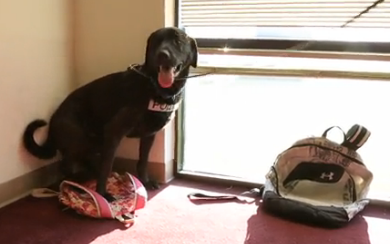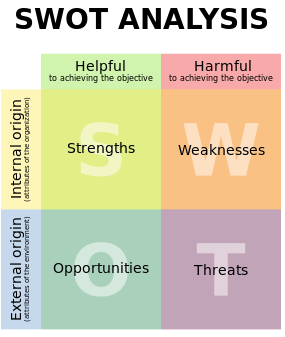The International Legal Technology Association (ILTA) annual educational conference of 2015 (now known as ILTACON) kicked off yesterday with several networking events, and begins in earnest today with the first day of sessions. eDiscovery Daily will be reporting this week about the latest eDiscovery trends being discussed at the show. Over the next four days, we will provide a description each day of some of the sessions related to eDiscovery to give you a sense of the topics being covered.
If you’re in the Las Vegas area, come check out the show – there are a number of sessions available and over 190(!) exhibitors providing information on their products and services. Perform a “find” on today’s ILTACON conference schedule for “discovery”, “litigation support” or “information governance” and you’ll get at least 6 sessions with hits. So, there is plenty to talk about! Sessions in the main conference tracks include:
11:00 AM – 12:00 PM:
Creating the Firm of the Future: Utilizing IG Assessments To Drive Improvements
Description: In a world of ever-rising concerns of privacy, security and protecting intellectual property, clients are now more information savvy, and are insisting that their law firm representation is maintaining high standards when it comes to internal information governance (IG) strategies and practices.
Therefore, the firms of the future will need to able to offer clients proof of where they stand on the maturity of these practices to secure client trust and confidence.
Is your firm ready to answer the call for transparency?
In this session, you will learn how an IG assessment can play a critical role in taking your firm to the Next Level in preparing to meet your clients’ increasing demands and expectations for governing their information. You’ll understand what it takes to deploy a firm-wide assessment, and hear about real-world experiences with implementation and leveraging outcomes.
Speaker is: David Vickers – ARMA International
Embracing Managed Services for Litigation Support
Description: Is your firm contemplating a move to a managed services model? Are you wondering what the journey entails? A panel of leaders who have embraced the switch to managed services for litigation support will tell their tales of what led them there, associated costs, staffing, the type and volume of work and, most important, how it is working out.
Speakers are: Wale Elegbe – Sullivan & Cromwell LLP; R.P. Smith – Jones Walker LLP; Chris Haley – Troutman Sanders LLP; Kim C. Edwards – Patterson Belknap Webb & Tyler LLP.
1:00 PM – 2:00 PM:
Building Information Governance Like “Ocean’s Eleven”
Description: In the 2001 movie “Ocean’s Eleven,” George Clooney assembles the perfect team to pull off a spectacular Vegas robbery. In managing IT governance, risk and compliance (GRC), your firm also needs to assemble the perfect team. How do you find and manage the key players in GRC, and how do you properly divide the varied responsibilities that must be shouldered? Together we can figure out how to build a team that prepares us for the heist (GRC program) of a lifetime.
Speakers are: Nancy Beauchemin – InOutsource; Beth A. H. Faircloth – Seyfarth Shaw LLP; Tim Schank – Vedder Price P.C.; Stuart Senator – Munger, Tolles & Olson LLP.
Litigation Support Roundtable
Description: We all hate the fire drills and would like to prepare for challenges before they arrive. What major challenges in litigation support will we face next? During this moderated roundtable discussion of hot topics in litigation support, we will address concerns on the minds of your peers and identify issues to consider for the future. Topics will be selected by session attendees and could include staffing, product selection, technological advances, recent case decisions, outsourcing, etc.
Speakers are: Joanne Lane – Merck & Co., Inc.; Stephen Dooley – Sullivan & Cromwell LLP.
2:30 PM – 3:30 PM:
Information Governance Consulting: Law Firm Opportunity or Mistake?
Description: Driven by information security requirements, e-discovery costs and government regulations, clients are turning to law firms for strategic approaches to managing their information. Law firms have an opportunity to assist and further direct and grow information governance initiatives within client organizations, but what are the risks of this type of work? What do clients expect? What can law firms provide that technology solutions do not, and what benefits come from this type of client relationship? Opportunity or mistake? You make the call!
Speakers are: Brynmor Bowen – Schulte Roth & Zabel; Ms Samantha J Lofton – Ice Miller LLP.
4:00 PM – 5:00 PM:
Is Big Data in Legal a Figment of Our Imaginations?
Description: The big data phenomena simply does not apply to the legal market. After all, our firms’ data sets and data complexities are much too small to warrant industrial-strength big data technologies and techniques, right? This panel of law firm technology, privacy and governance experts strongly disagrees! We will share firsthand examples of big data at work in our law firms and show how to apply “big data thinking” to utilize technologies and techniques in a new, more productive, efficient and analytical way. Get ready for real-time role playing aimed to arm you with the information you need to address your managing partner’s big data questions (and doubts) and build a solid big data business case even the biggest curmudgeon can’t deny. Along the way, our experts will touch on hot themes including technology (analytics, algorithms, etc.) and governance (including privacy and security). We’ll also share enough legal big data (BD) case studies to make BD-lievers out of everyone!
Speakers are: Jobst Elster – InsideLegal.Com; Brynmor Bowen – Schulte Roth & Zabel; Eric Hunter – Bradford & Barthel, LLP; Galina Datskovsky – Vaporstream; Judy Selby – Baker & Hostetler LLP; Paul Starrett – Starrett Consulting and Investigative Services.
For a complete summary listing of all sessions at the conference, click here.
So, what do you think? Are you planning to attend ILTACON this year? Please share any comments you might have or if you’d like to know more about a particular topic.
Disclaimer: The views represented herein are exclusively the views of the author, and do not necessarily represent the views held by CloudNine. eDiscovery Daily is made available by CloudNine solely for educational purposes to provide general information about general eDiscovery principles and not to provide specific legal advice applicable to any particular circumstance. eDiscovery Daily should not be used as a substitute for competent legal advice from a lawyer you have retained and who has agreed to represent you.







